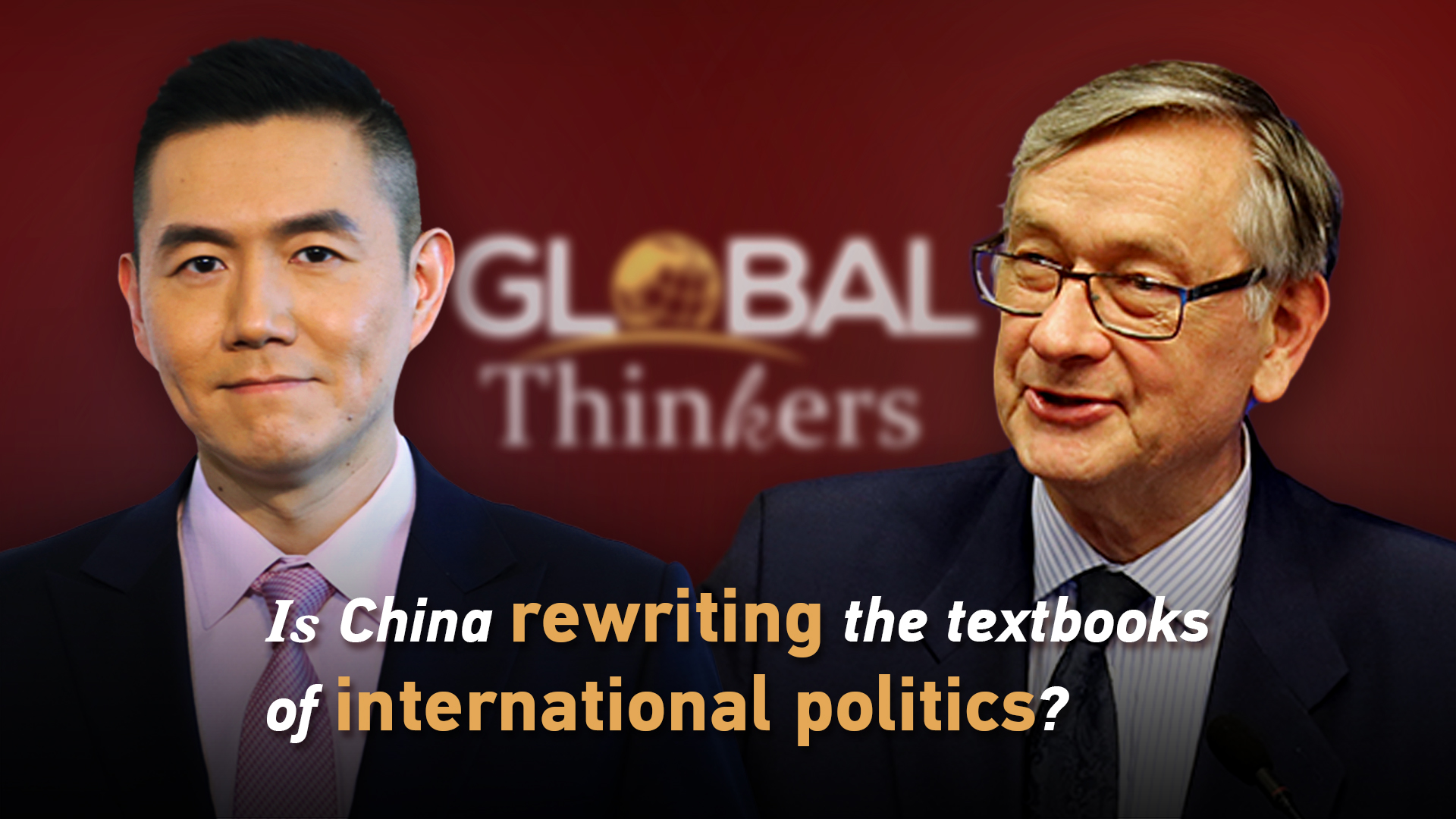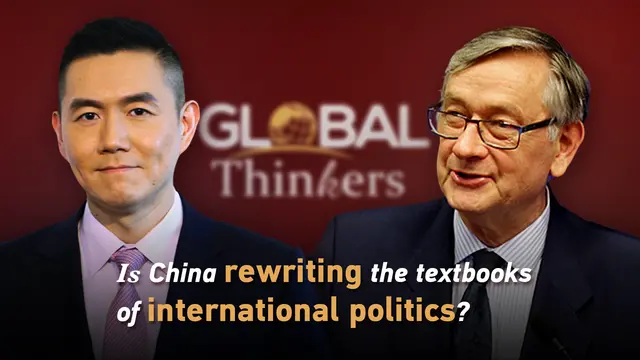06:24

**Editor's note: **Is there such a thing as the China model?Danilo Türk, former president of Slovenia, president of the World Leadership Alliance - Club de Madrid, and a non-resident senior fellow at Chongyang Institute for Financial Studies, Renmin University of China (RDCY), shares his thoughts with CGTN anchor Wang Guan onthe topic and why China's development model will remain distinctive from Western ones. With China's Two Sessions under way and the country's 14th Five-Year Plan being reviewed, he also discusses the significance of the plan for both China and the world at large. Opinions expressed in this video are his, and not necessarily those of CGTN.
**Wang Guan: **Let's talk about the China model. China has been praised for its ability to alleviate hundreds of millions of people out of poverty, its economic growth, and its delivery of public goods and services by its central and local governments over the years and also its relative consistency in its foreign policy making, if you think about it.
First of all, do you think there's such a thing as a China model? If so, do you think that China model is perhaps rewriting the textbooks of international political science?
**Danilo Türk: **I'm sure that there is something like development with Chinese characteristics. China is a large and old civilization and China cannot simply import a development model from somewhere else. China has to develop its own development model and then obviously interact with the rest of the world and include whatever is helpful. So I mean the period of opening of China, which has started some 40 years ago, has been received from start as something very positive for the world.
Now some people believe that China will actually Westernize. Now, in my opinion, that was never an option. China is simply too large and too developed an old culture to be completely Westernized. It will be China but it will include much of Western wisdom, I'm sure. I think it would be useful if we, in the West, could import some of the Chinese wisdom as well.
Will that have an impact on textbooks on political science and other things? Sure, it will. Because the importance of the Chinese model is going to be studied. I have recently read a very interesting book by a professor from Yale University, United States, by name of Daniel Mattingly who wrote about governance of China.
And it was very interesting that in the book, he makes comparisons between arrangements for development approaches, political systems, how they actually work in various parts of the world including, for example, the experiences from the United States where certain patterns of governance in various recent periods were very similar to those that are applied to China. Now that shows that models of development do influence each other or share some characteristics. But each of them remains its own. Nobody would suggest that United States should kind of abandon the American way. Nobody should say that China should abandon the Chinese way.
**Wang: **Also, in March, China's Congress will convene to officially ratify its 14th Five-Year plan. Can you explain, from your perspective, the role of Five-Year plans to China's social and economic development and this 14th one, in particular?
**Türk: **Obviously, looking from outside, the interesting thing about China's Five-Year plans has been that the world learned to look at those Five-Year Plans as important globally.
I worked for the United Nations some 15 years ago and I remember at that time, when we were in the United Nations developing a global framework, which was called Millennium Development Goals, when we talked about realization about the carrying out of those goals, we very early on came to the point in which China was seen as a major factor and Chinese Five-Year Plans was a major element in thinking about global Millennium Development Goals. I was with the secretary-general of that time, Kofi Annan, on his visits to China every year.
I can tell you every year Kofi Annan talked about Five Years' Plan with the Chinese leaders as if this was something that the United Nations has already internalized as an important ingredient in the global landscape.
So that's how I think the world is learning to perceive the Five-Year Plan. The 14th Five-Year Plan will be particularly interesting this year because first of all, it comes at the time of COVID and post-COVID recovery where everybody will be looking towards China in terms of importance of its partnership with the rest of the world. That's one factor.
The other one is the dual circulation principle, the idea of dual circulation. That, again, is very interesting novelty because it suggests better coordination between internal development and market growth in China and its international cooperation. Now, what kind of possibilities to accessing Chinese market does that present for Western providers of goods and services? How does one build the medical services into that picture?
I know that in the Shanghai Import Expo, President Xi has spoken about opening up in those areas. And the EU-China agreement on investment is a step forward in that direction. But the next Five-Year Plan will be a very interesting opportunity for the world. And in addition to what the world has already learned about China being important for global growth and development, we can now learn how China can be helpful also in bringing its internal development closer to the needs of foreign partners.
Special thanks to Chongyang Institute for Financial Studies, Renmin University of China.
(If you want to contribute and have specific expertise, please contact us at
.)
 简体中文
简体中文



